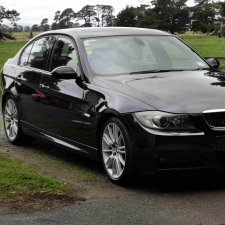copied and pasted so take with a grain of salt
Good news, E-cars used less CO2 than diesel cars…but only after 585,000km! Quote:
The German ADAC association, the equivalent of America’s AAA, carried a CO2 comparison for a variety e-autos and combustion engine cars. The results were very surprising, says German magazine Autobild here.
Today electric cars are being pushed as a clean and environmentally friendly alternative, while diesel and gasoline burning engines are being villainized as polluters and climate killers. In their comparison, however, the ADAC came up with some unexpected results. CO2 cars indeed have huge CO2 footprints.
The ADAC reminds that energy does not only get used while driving the vehicle, but also for their manufacture and later for their recycling and supply of fuel.
According to the ADAC, the manufacture of the electric car’s battery requires a considerable amount of energy, which has a considerable impact on its overall CO2 budget over its lifetime.
The ADAC compared cars from three different segments to find out if electric cars are really more climate friendly: The overall result:
General conclusions are not possible. But: electric cars in Germany today are already in many cases a good environmentally friendly choice. However, they could have a much better CO2 balance if they used exclusively renewable electricity.”
So far Germany’s power grid still relies heavily on fossil fuels.
ADAC looked at diesel, gasoline, natural gas, hybrids, e-cars and others over the range from compact to large sizes cars from a wide variety of manufacturers. It compared the cars after 150,000 km using the German power supply mix of 2013, which had a renewable energy share of 23%. (Today renewable energies have a share of 33%, which would improve the result of the e-cars somewhat).
The ADAC found that only compact electric cars had the best CO2 budget at 22.5 tonnes of CO2, while gasoline powered cars yielded 30 tonnes. For the next bigger class of cars, called small cars, electric cars still came out ahead, “but only when using the optimistic 150,000 total travel distance.” Less than that, however, they were in fact dirtier.
Note that electric cars traveling 150,000 km are rare, if they exist at all. Renewing the batteries would also mean a further CO2 budget setback.
The ADAC calls the results of their comparison “surprising”.
Autobild reports: “The reality, however, is that small e-cars are often used as a second car or a car for the city. At 50,000 km of driving an e-car cannot compensate the high CO2 emissions for manufacturing, recycling and power provision.”
Upper midsize: e-car worthwhile only after 585,000 km
In other words, with Germany’s current electric power supply mix, even small e-cars still have a greater CO2 budget than diesel powered ones of the same class for longer lifetime distances.
German “Autobild” magazine adds:
Surprising results in the upper mid-class cars: Here diesel produces the best result with 33 tonnes of CO2 over 150,000 km! Because the e-car produces so much CO2 (41 tonnes CO2) for the manufacture of the batteries and recycling, they would first be worthwhile only after 580,000 km compared to diesel engine cars.”
So what’s the take home message? If you’re concerned about CO2 warming the planet, then purchase a diesel engine car. End quote.
I wonder what the Gunts are going to say about this not unsurprising result. I’ve always said these virtue-signalling wankers in e-cars drive around emitting vast clouds of smug are ignoring the mining and manufacturing processes that go into their smug driven vehicles.
That’s another myth busted.



